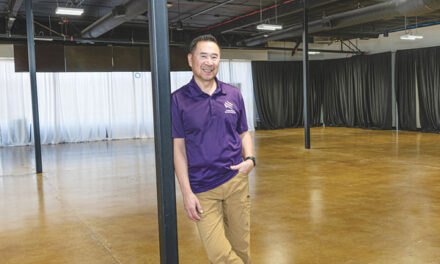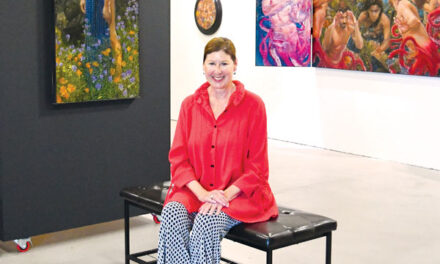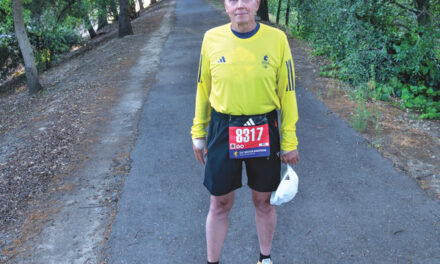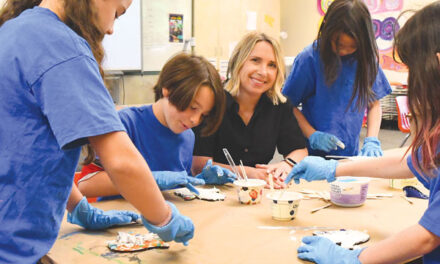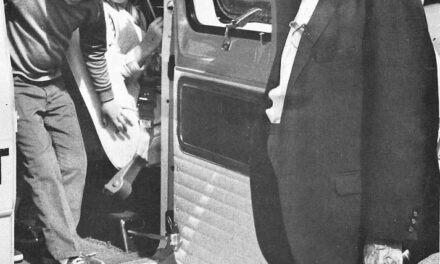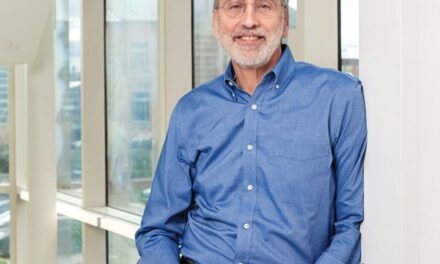Staying Afloat
3 small businesses hang on during COVID
By Seth Sandronsky
October 2020
In Sacramento, COVID-19 restrictions have pounded small businesses, sinking consumer demand and sales revenue. One entrepreneur who knows about that experience is Roshaun Davis, co-owner of Unseen Heroes, an events planning firm in Sacramento he began in 2012 with his wife, Maritza.
Unseen Heroes closed in mid-March after Gov. Gavin Newsom imposed stay-at-home orders that shut down large parts of the state’s $2 trillion economy. Small businesses operating on razor-thin margins still feel the pain.

“We’ve been struggling financially since then,” Roshaun says. “There have been zero large gatherings.”
COVID-19 closed 22 percent of small businesses across the U.S. between February and April, according to a brief from the Federal Reserve Bank of New York. Near double that number, or 41 percent of Black-owned businesses, closed versus closure rates of Latinix (32 percent), Asian (26 percent) and white business owners (17 percent).
In July, Unseen Heroes lost its management contract with Midtown Association. Unseen Heroes had operated the association’s Midtown farmers market for the past five years. Losing that contract compounded the COVID-19 consumer-demand shock for the Davis’ enterprise.
“It is not just our business that suffers,” Roshaun says. “Our network of hundreds of firms rely on us to sell their goods and services too.”
In mid-March, Eric Ullrich, co-owner of Hacker Lab with Gina Lujan, saw the bottom drop out of their small business that, in part, makes personal protective equipment for first responders and health care workers to fight COVID-19 and avoid infection.
“We had to cancel our training sessions and classes,” Ullrich says. “We’re on life support.”
Susan and Lawrence Crane own The Party Concierge, a 42,000-square-foot special-events design and décor company. “Our cash flow stopped and we lost 100 percent of our business in mid-March,” Susan says. As a result, the Crane’s payroll dropped from 23 to eight employees, a 65-percent cut.
For Unseen Heroes, branching into the digital sphere has been a way to cope with the COVID economy, Roshaun reports. “We have been consulting online.”
Hacker Lab closed its facilities in Rocklin and Rancho Cordova in May. “We have tried to pivot to online and free classes as a way to stay helpful,” Ullrich says.
The Cranes have diversified their business during COVID-19 restrictions. “That is the key,” Susan says. “We are doing e-commerce, opening an Etsy site and introducing new product lines. You have to be flexible and learn how to put your company forward.”
Meanwhile, the Cranes are moving forward on improving communication with their customers. “It is very important to let them know we are still open and working on projects for 2021,” Susan adds.
Unseen Heroes and Hacker Lab each received $100,000 from the city of Sacramento’s Creative Economy Recovery program, funded from $89 million the capital city got from the federal Coronavirus Aid, Relief, and Economic Security Act. “That will help us to cover our operating costs,” Roshaun says.
Unseen Heroes has a new project, one that bridges agriculture, a local mainstay, and culture. The NeighborGood Market, a certified farmers market in Elk Grove, is now open Thursdays from 4 to 8 p.m. featuring fresh produce, artisan goods, and hot and prepared food.
In August, the Sacramento City Council distributed a separate CARES Act grant of $313,500 to Hacker Lab to train 75 people in prototyping and entrepreneurship to make personal protective equipment and for related commercial ventures. In addition, the company applied for and received federal Paycheck Protection Program funds. “We have not had to fire anybody,” Ullrich says of the 10-employee firm in business since 2012.
The Cranes have also tapped a line of credit with their lender, California Bank and Trust. “They have been super and always there for us,” Susan says. Further, The Party Concierge has received PPP funds to help meet its payroll, and pay rent and utilities.
At the end of August, the governor announced a new color-coded “Blueprint for a Safer Economy” reopening plan for businesses and schools amid COVID-19 restrictions. His plan requires documented data on reduced transmission of the pandemic before businesses and other group activities can expand or resume operating.
“Unfortunately, it’s still not totally clear where we fit within this new plan,” Eric says.
Seth Sandronsky can be reached at sethsandronsky@gmail.com.



